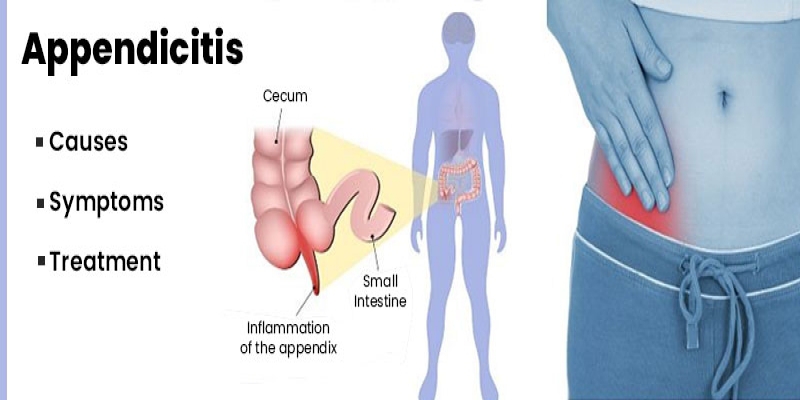Some Facts About Appendicitis That You Need to Know
2019-03-23 / RG STONE HOSPITAL / Appendicitis

Appendicitis is a small pouch attached to the beginning of the large intestine. Appendicitis refers to the inflammation of appendix / Appendicitis. It is one of the most common causes of emergency abdominal surgery.
Appendix has no function, and so removal of the appendix doesn’t cause any change in digestive motion.
But, it does contain good bacteria which get released into the intestine whenever required.
But, it does contain good bacteria which get released into the intestine whenever required.
In American and European nations, the occurrence of appendicitis is found in 7% of population, however, its occurrence is lower in Asian and African countries due to dietary habits.
Men are more affected than women, with a male-to-female ratio of 1.7:1. Although it can be found in age group, but is much common between 10 to 20 years. Rarely, neonatal and prenatal appendicitis cases are also reported.
What are The Causes of Appendicitis?
Appendicitis is caused due to blockage, impaired blood flow, increased pressure, or inflammation are.
If the blockage is not treated timely, it may lead to rupture of the appendix that can be fatal.
In most of the cases, obstruction is caused by the accumulation of fecal matter, but may also result from:
- Traumatic injury to the abdomen
- Enlarged lymphoid follicles squeezing the appendix
- Bacterial or viral infection or even the intestinal worms causing inflammation
- Tumor in the abdomen
It is a medical emergency because when the appendix ruptures, the fecal matter fills the abdomen and may even cause peritonitis.
After the rupture, other organs can also become infected. So it is very important to treat the disease in the initial days while the symptoms are quite visible.
After the rupture, other organs can also become infected. So it is very important to treat the disease in the initial days while the symptoms are quite visible.
What are The Symptoms of Appendicitis?
The possible symptoms for appendicitis differ greatly for adolescents from adults.
The symptoms of appendicitis may include:
- Loss of appetite
- Abdominal swelling
- Indigestion
- Constipation or Diarrhoea
- Nausea and Vomiting
- Low fever that initiates after the symptom onset.
- Inability to pass gas or frequent passing of gas.
- Pain in the abdomen that begins around the belly and then gradually shifts to the lower right area that is termed as migratory abdominal pain.
One may find changes in the bowel habits or even in urination. In terms of abdominal pain, the pain intensifies and worsens while moving, taking deep breaths, sneezing or coughing.
The area that is painful becomes very tender to any kind of applied pressure.
How is The Diagnosis Made?
For the diagnosis of appendicitis, the doctor performs physical exam at first and looks for tenderness in the first quadrant of the abdomen.
In pregnant females, the pain might be little higher and if perforation occurs then the stomach may become hard and swollen.
Other tests including Urinalysis, pelvic exam, ultrasound and abdominal CT Scan might be ordered by the doctor as required.
Appendicitis Treatment
In uncomplicated cases, the appendicitis is removed via Laparoscopic Appendectomy procedure.
If the CT scan shows that there is an abscess from a ruptured appendix, then the patient is first treated for infection and the appendix is removed only after the infection and inflammation have gone away.
Categories
Hernia Repair
Appendicitis
Piles
Urological Treatment
Hernia treatment
Enlarged Prostate (BPH)
Gall Bladder Stone
Urinary / Kidney Stone
Vitamins
Indian Health Care System
Exercise
Obesity
Female Urinary Incontinence
Single Incision Laparoscopic Surgery (SILS)
Kidney Cancer
Bladder Cancer
Ovarian cancer
Nephrology
Bariatric Surgery
Kidney Function Test
Female Urology
Radiation Therapy
Alcoholic Fatty Liver
Liver disease
Gastroenterology
Kidney Disease

